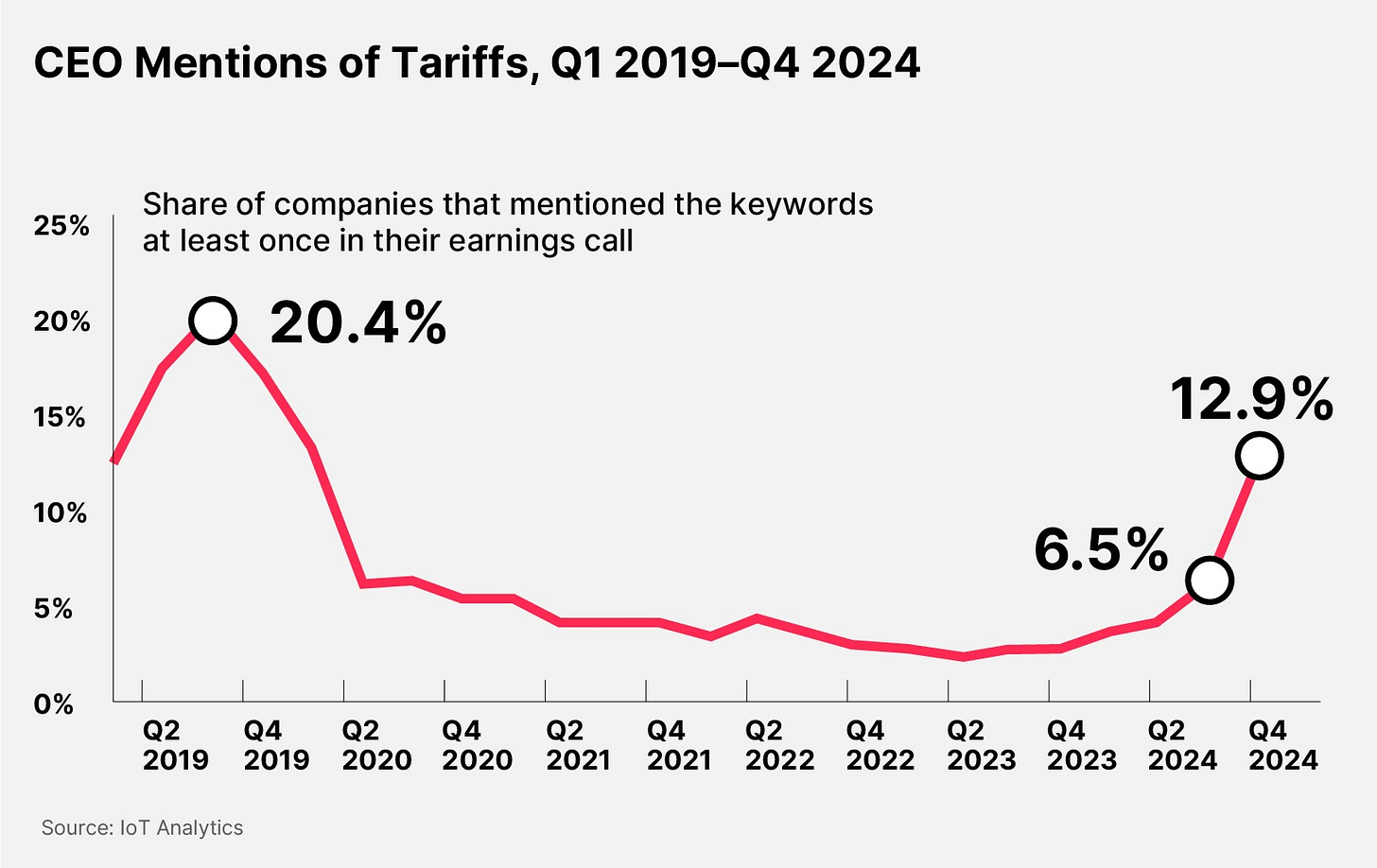Could These 7 Stocks Benefit from Trump’s Tariffs?
The Trump administration’s trade tariffs have shaken the global economy. What firms are poised to benefit?
Key Takeaways
Tariffs protecting US industry have the potential to strengthen domestic manufacturing and fuel reshoring initiatives;
Donald Trump’s US election win saw reshoring-related financial instruments rally, and many companies pivot to a focus on domestic manufacturing;
Inflationary pressures and macroeconomic uncertainty could serve as key headwinds, even for firms prepared to deal with tariffs.
It did not take long for US President Donald Trump to start wielding his presidential power. Within days of his inauguration, he declared tariffs of 25% on goods imported from Canada and Mexico, and 10% on imports from China.
The tariffs on the US’ neighbors were quickly paused for 30 days after they both agreed to tighten migration and drug controls. However, Trump offered no reprieve to China, describing the tariffs as the “opening salvo” and warning that there is potential for them to become “very, very substantial” if Beijing and Washington cannot come to an agreement.[1]
Beijing has retaliated by imposing a raft of tariffs on American materials and products, including 10% on crude oil and agricultural machinery and 15% on coal and liquefied natural gas.
Trump has also threatened further tariffs targeting chipmakers, drugmakers and metal producers. He followed through on the last of these three on February 11 with a flat 25% tariff on all imports of aluminum and steel. He also said he is introducing new industry standards that will demand aluminum be “smelted and cast” and steel be “melted and poured” in North America.[2]
These tariffs and standards are designed to protect the US’ national interests and domestic industries.
Research by the bipartisan Coalition for A Prosperous America argued last year that the tariffs introduced by Trump during his first presidency “strengthened the US economy”, while also leading to “significant reshoring” efforts, a boon for domestic manufacturing.[3]
Following the 25% tariffs imposed on Mexico, the Atlantic Council released research that concluded that there is a high probability Trump’s tariffs “would create new incentives for US consumers to buy US-made products”.[4]
So, what does Trump’s tariff policy mean for investors?
Keep reading with a 7-day free trial
Subscribe to Foresight to keep reading this post and get 7 days of free access to the full post archives.





